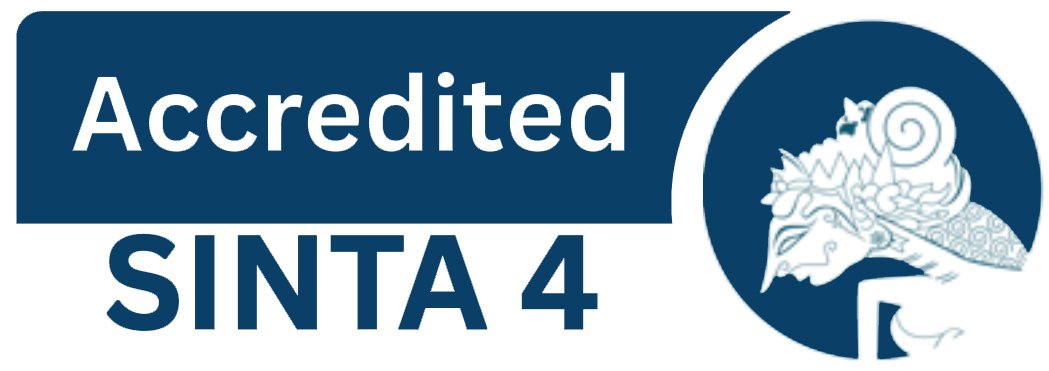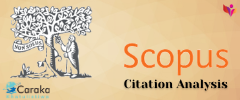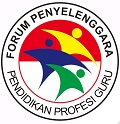Implementation of Constructivism-Based Game-Based Learning Model in Science Learning for Grade IV
DOI:
https://doi.org/10.22460/jpp.v4i1.27441Keywords:
Games-based learning, IPAS, Constructivism, LearningAbstract
This study aims to describe the implementation of a Game-Based Learning model grounded in constructivist theory in the teaching of Science and Social Studies (IPAS) in fourth-grade elementary school classrooms. This descriptive research explores the learning process that incorporates educational games to foster students’ active engagement in constructing conceptual understanding. The participants of this study were fourth-grade teachers and students at SDN 6 Metro Pusat. Data collection techniques included observation and interviews. The findings indicate that the use of Game-Based Learning enhances student participation in learning activities, promotes collaboration, and strengthens conceptual understanding through real-life learning experiences. Data presentation shows that 83% of students expressed agreement with the constructivism-based Game-Based Learning approach, categorized as forceful. In addition, teacher interviews revealed a score of 79%, categorized as strong. Thus, the constructivist-based Game-Based Learning approach has been proven to create an enjoyable learning environment and stimulate students' intrinsic motivation. These findings suggest that the implementation of educational games integrated with a constructivist approach has the potential to be an effective learning strategy to improve the quality of IPAS education in elementary schools
References
Alfansyur & Mariyani. (2020). Triangulasi metoda penelitian kualitatif. Borneo Novelty.
Bashooir, K., & Supahar, S. (2018). Validitas dan reliabilitas instrumen asesmen kinerja literasi sains pelajaran fisika berbasis STEM. Jurnal Penelitian Dan Evaluasi Pendidikan, 22(2), 219–230. https://doi.org/10.21831/pep.v22i2.19590
Daryanto, & Karim, S. (2017). Pembelajaran tematik terpadu. Gava Media.
Fitriyani, N., Suryani, N., & Hartati, S. (2022). Pengaruh penggunaan media game edukatif terhadap hasil belajar IPA siswa sekolah dasar. Jurnal Pendidikan Dasar Nusantara, 8, 55–64.
Hendryadi. (2020). Analisis validitas isi instrumen tes berpikir kritis ips kelas v sd kota yogyakarta. Jurnal Penelitian Dan Karya Ilmiah.
Nugraheni, R., & Setiawan, B. (2023). Implementasi pendekatan konstruktivisme dalam game-based learning untuk meningkatkan keterampilan berpikir kritis siswa SD. Jurnal Inovasi Pendidikan Dasar, 11, 101–110.
Prananda, G., Judijanto, L., Ramadhona, R., & Lestari, N. C. (2024). Evaluasi literatur terhadap pengaruh game-based learning dalam meningkatkan motivasi belajar siswa. Pendas: Jurnal Ilmiah Pendidikan Dasar, 9(4), 388-401.
Rahayu, S. D., Dayu, D. P. K., Khoiroh, H., & Moeljaningsih, W. (2024). Penerapan game based learning educaplay untuk meningkatkan keaktifan belajar pada pembelajaran ipas sekolah dasar. Didaktik: Jurnal Ilmiah PGSD STKIP Subang, 10(3), 511-519.
Riduwan. (2010). Skala pengukuran variabel-variabel penelitian. Alfabeta.
Rusman. (2017). Model-model pembelajaran: mengembangkan profesionalisme guru. Rajawali Pers.
Sahra & Aisiah. (2022). Validitas Isi Instrumen pengukuran literasi sejarah. Jurnal Family Education.
Suprapto, N., Kusumawardani, R., & Lestari, D. (2020). Membangun keaktifan belajar siswa melalui pembelajaran berbasis proyek dan konstruktivisme. 45–52.
Susanto, Risnita, & J. (2023). Tekhnik pemeriksaan keabsahan data dalam penelitian ilmiah. Pendidikan Sosial & Humaniora, 1.
Widodo, A., & Nurtanto, M. (2020). Pendekatan konstruktivistik dalam pembelajaran abad 21. Jurnal Pendidikan Karakter, 10, 10–20.
Zaini, M., & Rahman, M. T. (2021). Model dan strategi pembelajaran inovatif. FKIP Universitas Lambung Mangkurat.
Downloads
Published
How to Cite
Issue
Section
License
Copyright (c) 2025 Oky Prayogi, Ryan Dwi Puspita

This work is licensed under a Creative Commons Attribution-ShareAlike 4.0 International License.
Authors who publish with the Journal Pendidikan Profesi (JPP) agree to the following terms:
- Authors retain copyright and grant the journal the right of first publication with the work simultaneously licensed under a Creative Commons Attribution License (CC BY-SA 4.0) that allows others to share the work with an acknowledgment of the work's authorship and initial publication in this journal.
- Authors are able to enter into separate, additional contractual arrangements for the non-exclusive distribution of the journal's published version of the work (e.g., post it to an institutional repository or publish it in a book), with an acknowledgment of its initial publication in this journal.
- Authors are permitted and encouraged to post their work online (e.g., in institutional repositories or on their website) prior to and during the submission process, as it can lead to productive exchanges, as well as earlier and greater citation of published work. (See The Effect of Open Access)
Similar Articles
- Inthan Nenditha, Jajang Bayu Kelana, Pengembangan Media Pembelajaran Powerpoint Interaktif Untuk Meningkatkan Kemampuan Pemahaman Konsep IPA Siswa Kelas IV SDP Al- Basyariah , Jurnal Profesi Pendidikan: Vol. 2 No. 2 (2023): December
- Husni Qodariah, Sylvia Rabbani, Pengembangan Media Pembelajaran Ayam MSP Materi Satuan Panjang Berbantuan Aplikasi Scratch Dengan Menggunakan Model Discovery Learning Untuk Meningkatkan Pemahaman Konsep Matematika Pada Siswa SD Kelas III , Jurnal Profesi Pendidikan: Vol. 1 No. 2 (2022): December
- Maya Hilma Khoirunnisa, Diana Ermawati, Imada Khairunisa, Increasing Interest in Learning Mathematics Through the Technological Pedagogical and Content Knowledge (TPACK) Approach in Grade II Elementary School Students , Jurnal Profesi Pendidikan: Vol. 4 No. 1 (2025): June
- Febrianti Amini, Jajang Bayu Kelana, Ronny Mugara, Pengembangan Bahan Ajar Materi Interaksi Sosial Berbasis Model Pembelajaran Kooperatif Tipe STAD , Jurnal Profesi Pendidikan: Vol. 3 No. 1 (2024): June
- Greesla Anggera Jaya, Jajang Bayu Kelana, Peningkatan Pemecahan Masalah Matematika Menggunakan Model Pembelajaran Problem Based Learning Berbantuan Bar Modelling Untuk Siswa Sekolah Dasar , Jurnal Profesi Pendidikan: Vol. 1 No. 1 (2022): June
- Nina Vania, Wahyu Hidayat, Trisna Nugraha, Penggunaan Model Problem Based Learning Berbantuan Video Powtoon Untuk Meningkatkan Kemampuan Berpikir Kritis Siswa Kelas III Sekolah Dasar , Jurnal Profesi Pendidikan: Vol. 3 No. 1 (2024): June
- Sidik Handoko, Puspa Dianti, Laili Linda Hartati, Improving Student Motivation in Learning Pancasila Education with Bamboozle Media Games in Class VII B SMP Negeri 51 Palembang , Jurnal Profesi Pendidikan: Vol. 4 No. 1 (2025): June
- Ahadiyatul Kamilah, Siti Ruqoyyah, Keterampilan Membaca Permulaan Siswa Kelas 1 SD Menggunakan Contextual Teaching And Learning Berbantuan Kartu Kata , Jurnal Profesi Pendidikan: Vol. 1 No. 1 (2022): June
- Medita Ayu Wulandari, Anwar Senen, Duhita Savira Wardani, Siti Ruqoyyah, Transforming Education Through Project-Based Learning (PjBL): Enhancing Students' Learning Outcomes and Critical Thinking , Jurnal Profesi Pendidikan: Vol. 4 No. 1 (2025): June
- Aris Al Gimdi, Hana Sakura Putu Arga, Uus Kuswendi, Penggunaan Model Pembelajaran Kooperatif Tipe Phair Check Untuk Meningkatkan Keterampilan Sosial Toleransi Pada Siswa Kelas IV SD , Jurnal Profesi Pendidikan: Vol. 2 No. 2 (2023): December
You may also start an advanced similarity search for this article.
















